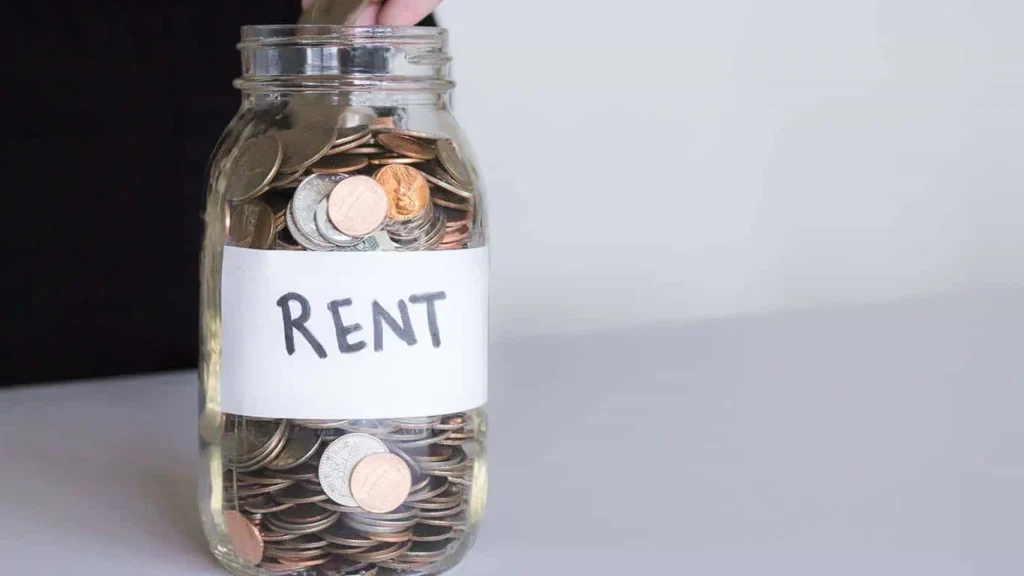For many, home rentals are one of the most major budget items, and saving any amount of money from that makes a difference. It does not matter whether your goal is to downsize to bring down monthly rent or prepare yourself for a move; finding ways of saving money on rent is a key component of smart budgeting.

Learning how to save money on rent is essential for you to remain financially stable. According to statistics, house rent takes about 50% of your income annually.
Can I Negotiate a Lower Rent with my Landlord?
It can be daunting to negotiate rent, but it’s doable, especially if you’ve been a long-term tenant with a good history of paying on time.
Offering longer lease terms, agreeing to minor property repairs, or paying a few months upfront are just some of the tactics that work in bringing down the monthly rate.
For both new and current contracts, renters and landlords are free to haggle over the rent. Research on local property availability and rent rates should be done before any negotiations.
Making a lease duration concession in exchange for a lower monthly rent is one potentially effective negotiation strategy.
Is a Roommate a Good Way to Cut Rent Costs?
Generally speaking, renting with roommates is much cheaper than renting alone. Once one lives with other people, rent and utilities can then be shared among the members.
Nevertheless, living alone allows a person to have privacy and enough personal space. Thus, there is a need for a tradeoff between finances and the kind of life one wants to live.
7 Steps on How to Save Money on Rent

It would be fair to say that finding ways to save on rent is a smart decision; it can be during the process of apartment search or ongoing strategies while renting. Following are seven effective ways to cut costs and save on rent.
Negotiate Your Rent with Your Landlord
The first thing that most renters do not realize is that the prices of rent are often negotiable, especially if you are a responsible tenant who has a good history of making your payments or if the property has been empty for quite some time.
The landlord would prefer to lower the rent a bit rather than go into expenses finding new tenants or incur losses due to vacancy.
- Find similar properties, and then take those examples to your landlord to prove that other similar ones in the area have lower prices.
- Provide your landlord with an offer of a longer lease period, and he or she might grant you a discount on rent in case you agree to a longer-term lease.
- Whenever possible, negotiate during the off-season, which is particularly during the Winter months when the action of moving is slower. They are the best times to negotiate your rent lower because the demand is usually low.
Move to a Cheaper Neighborhood
Perhaps the single most important determinant of the rent price is the location. If you wish to save money on rent, you may consider relocating to a neighborhood, city, or state that is less expensive.
Usually, suburban or less stylish areas offer cheaper rent while being close enough to major urban centers for work and social life.
- Look for up-and-coming areas of town and newer areas, which often have cheaper rent as they build in popularity.
- Commute options are what the commute will be like, since moving farther away may save money in rent but could add a lot to your commute time and costs.
- Research crime and safety to make sure that affordability does not come at an unsafe cost; research crime statistics; and speak with current residents.
Get a Roommate
Among the simplest ways to afford cheaper rent is by sharing the cost with a roommate. This can greatly reduce not only your rent but also shared costs, such as utilities, internet, and other bills.
Having a roommate helps you to afford larger and better-located apartments by pooling together resources with your roommate for an apartment that is more spacious and comfortable.
Besides rent, sharing in household expenses is one of the major expenditures you can share in a rental—choosing a place that is suitable for the size of your household will; similarly, split household supplies, groceries, and cleaning tasks.
A good roommate can save you a lot of money. However, open communication about finances, cleanliness expectations, and lifestyle choices is critical to avoid conflict.
Consider Renting a Smaller Space

Downsizing one’s living space could be among the simple ways to save on rent. In general, a small apartment or studio comes with lower rent, utility bills, and less upkeep. Downscaling will assist in the following ways:
- The less space, the less cost, which is ideal for anyone who wants to save on cost. Smaller apartments cost less in rent, and smaller spaces also mean less to heat, cool, and maintain.
- Downsizing into a smaller home helps stimulate decluttering and living with less, helps you lower overall spending and go through the process of simplifying your life.
- Amenities included in an apartment that may make it “high-end” generally include pools, gyms, or concierge services. If you’re trying to save money, look into a more low-key building without all of the frills.
Take Advantage of Move-In Incentives
And it’s not uncommon, especially in competitive rental markets or during slower months, for landlords to give an incentive for you to move in. These incentives can be free months, reduced security deposits, or application fee waivers. These could save you thousands in rent for the first couple of months or otherwise reduce other move-in costs.
- Certain landlords will give one or two months free once you sign a longer lease.
- You can ask for a security deposit reduction or to have a portion of it credited toward your rent.
- During slower months or seasons, landlords might not require an application or pet fee, just so that they fill their apartments.
- Sometimes the total savings over the lease term are great even if the rent is a little higher than other places upon first glance.
Pay Rent Upfront for a Discount
Others may offer you a discount for paying several months in advance. This method can help reduce your rent expense, especially if you have sufficient savings to pay many months in advance. How this works:
- If you are in a position to pay three to six months of rent upfront, ask your landlord if they would be willing to lower the total rent in exchange.
- It also helps landlords to trust you well enough that they will arrange this kind of deal.
- Make sure everything is in writing in your lease agreement to save errors later.
Consider Renting From a Private Landlord
Renting from a private landlord, other than from a property management company, leaves greater room for flexibility in negotiating rent, especially if one can establish a good rapport with the landlord. Here’s why:
- An individual landlord may be much more willing to negotiate on rent or cut some fees altogether.
- Rapport with the landlord may provide better terms, such as discounted rent or leeway on lease terms.
- Larger property management companies have less leeway in granting more stringent rent increases, whereas a private landlord might welcome some discussion of such an increase, especially if you have been a reliable tenant.
Wrapping Up
For most individuals, rent takes the biggest chunk of their budgets, yet knowing how to save money on rent frees more of your income towards other financial goals.
Whether through negotiating your lease, finding roommates, or taking advantage of move-in incentives, there are many ways to reduce the cost of rent and keep more money in your pocket.
By being cognizant of these methods listed above, renters can make informed choices to save hundreds and sometimes thousands of dollars each year.
A few suggestions put into operation will pay great dividends toward the total financial health of a person and enable them to reach their goals faster with less stress.







